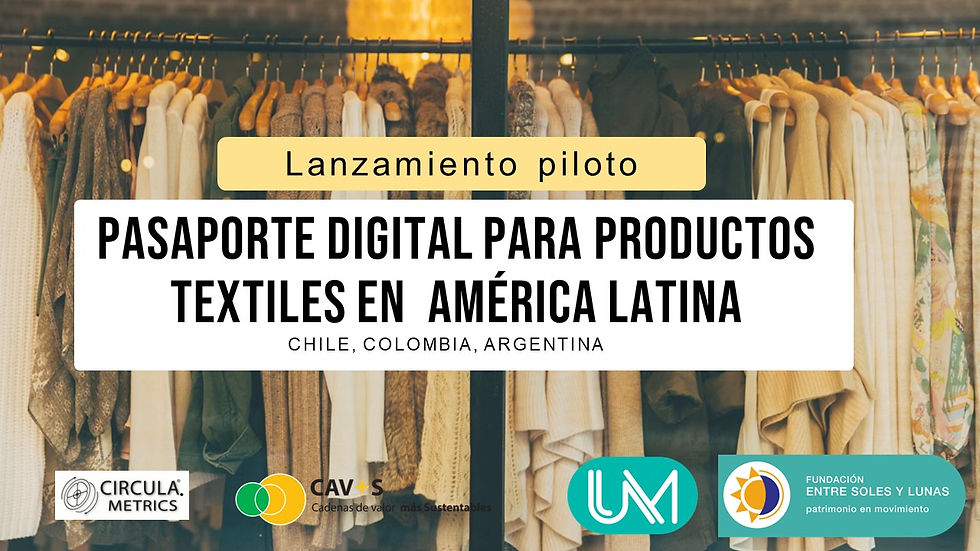We visited the textile landfills located in Alto Hospicio, and reflected on it.
- CAV+S

- Jul 5, 2024
- 2 min read
We visited Alto Hospicio, in the north of the country. In this municipality, close to the Iquique Free Zone, there are some of the country's critical textile landfills, characterized by housing the second-hand clothing that enters, imported from Asian and European countries.
Our tour included a visit to the Atacama Desert, where we were able to see several mountains of clothes, some completely new and in excellent condition, and others incinerated. Remnants of clothing that perhaps were not in good condition, that could not be sold in the municipality or that were simply discarded, for some reason or another.
Seeing all this touched us deeply, so we decided to share our experience through a video that included photos and videos of what we were able to observe, and a poetic story that was born to us as a result of the visit. Living this reaffirmed the purpose behind what we do, and with this video we want to connect it with you, so that we can all be part of the change.
We share the story below:
The burning desert and the dragon board Consumption embracing the mountain, a constricting embrace that suffocates the warm breath of the effervescent sand of the beloved desert. With its sinusoidal movement, it soaks the air with oil and a cocktail of unknown chemicals. Nothing is the same anymore, the food doesn't taste the same, it doesn't smell the same, you don't breathe the same, the landscape isn't the same. Even the consciousness that inhabits this territory seems to have untied the bond that united its people from their tradition and belief.
The dragon hill of Iquique has embodied its mythological relatives from Asia, Europe, and even those religious ones with long tails and hooves. They all converge in the beautiful desert, to finally exhale in unison the fire that transforms everything in its path. Thousands of textile products with their labels and traces of their history disintegrate, putting a violent and fast economic system under scrutiny. The fabric and sewing are incinerated, and along with them the efforts of hundreds of people and resources on the planet. Everything turns to ashes, and the phrase “you shall return to dust” appears.
While the red embers are still burning on ashes; nearby, at the Quebradilla fair, is Mrs. Julia, a Bolivian woman. She sells used clothes, and she's a hardworking woman whom, along with her husband and four children, live in this territory. She dreams and longs to return to her land, where her traditions are still alive, such as wool spinning, the making of her traditional costumes, and Quechua, her ancestral language. He expresses with deep sadness that his children will not be able to continue this legacy. She tells this story, while she is surrounded by garments made of petroleum threads for sale at a convenient price, and at the same time her children are playing cell phone.
If you want to check the video, here's the link:








Comments